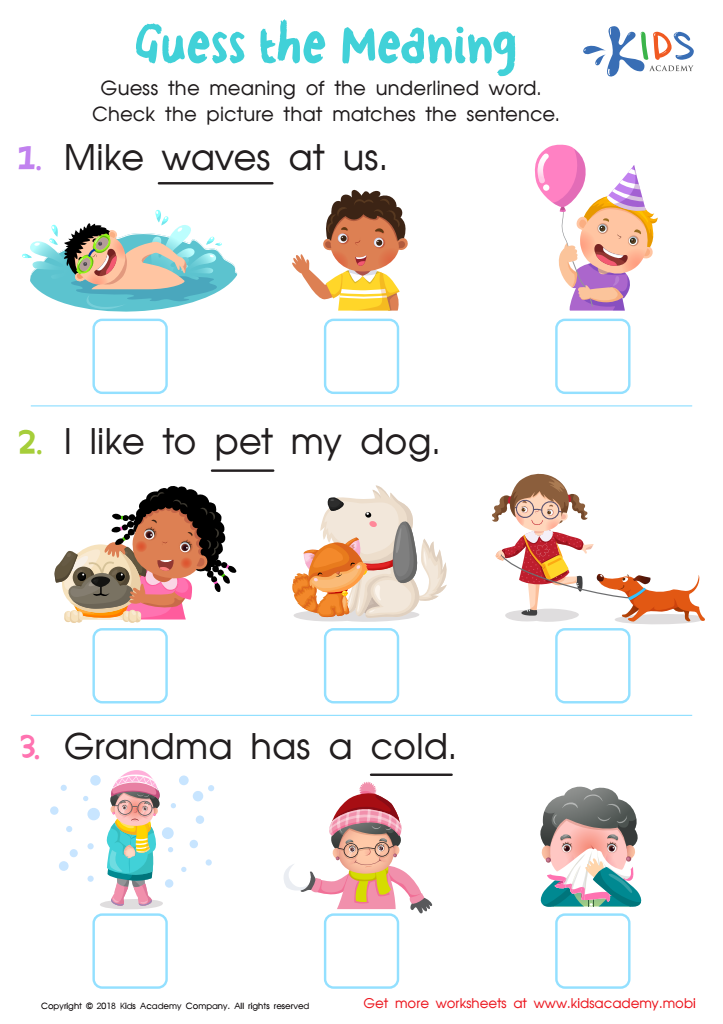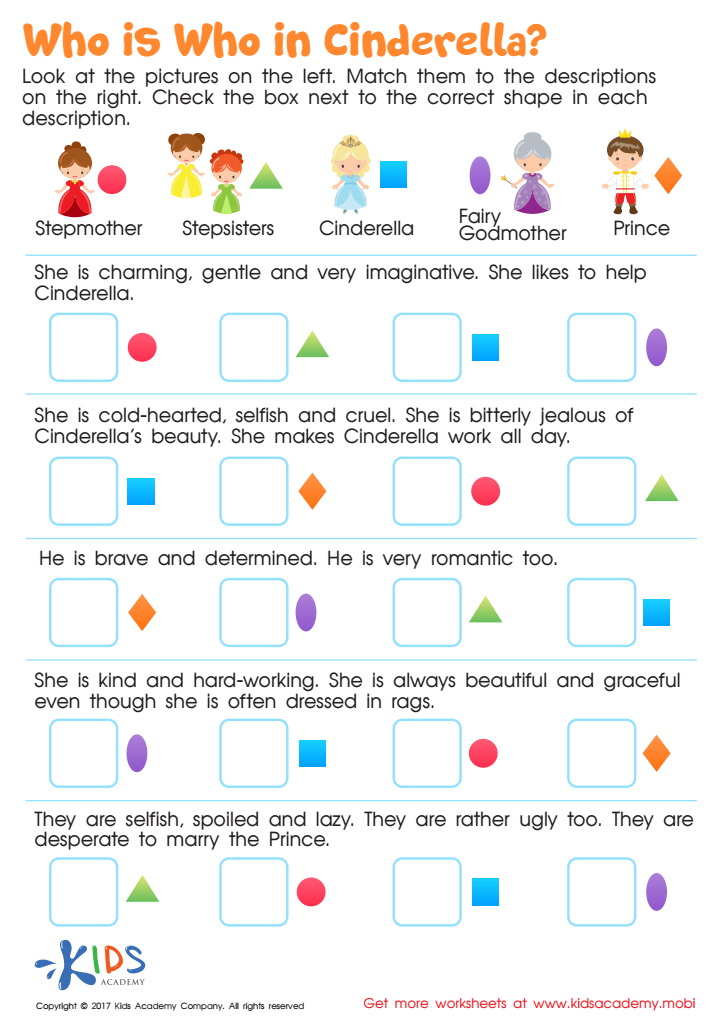Inferencing skills Worksheets for Kids
2 filtered results
-
From - To


Guess the Meaning Worksheet


Cinderella Comprehension Worksheet
Question/Answer
Why is the Inferencing skill important for Kindergarten students?
The inferencing skill is crucial for kindergarten students as it lays the foundation for critical thinking and reading comprehension. By learning to make inferences, young children develop the ability to understand implicit meanings, connect ideas, predict outcomes, and improve problem-solving skills. This enhances their overall academic performance and prepares them for more complex learning tasks in the future.
How to train the Inferencing skill in Kindergarten students learning about Grammar?
To train the inferencing skill in Kindergarten students learning about Grammar, use picture books and visual aids to discuss story elements. Engage them in predicting outcomes based on pictures and simple sentences. Incorporate role-playing and storytelling activities that encourage them to infer character feelings and actions.
How does the mastery of the Inferencing skill affect a student's performance at an early age?
Mastery of the inferencing skill at an early age significantly boosts a student's reading comprehension, critical thinking, and problem-solving abilities. It allows students to go beyond the text, making connections and drawing conclusions, which enhances their understanding and retention of information. This foundational skill sets the stage for academic success across subjects as they progress through their educational journey.

 Assign to the classroom
Assign to the classroom












